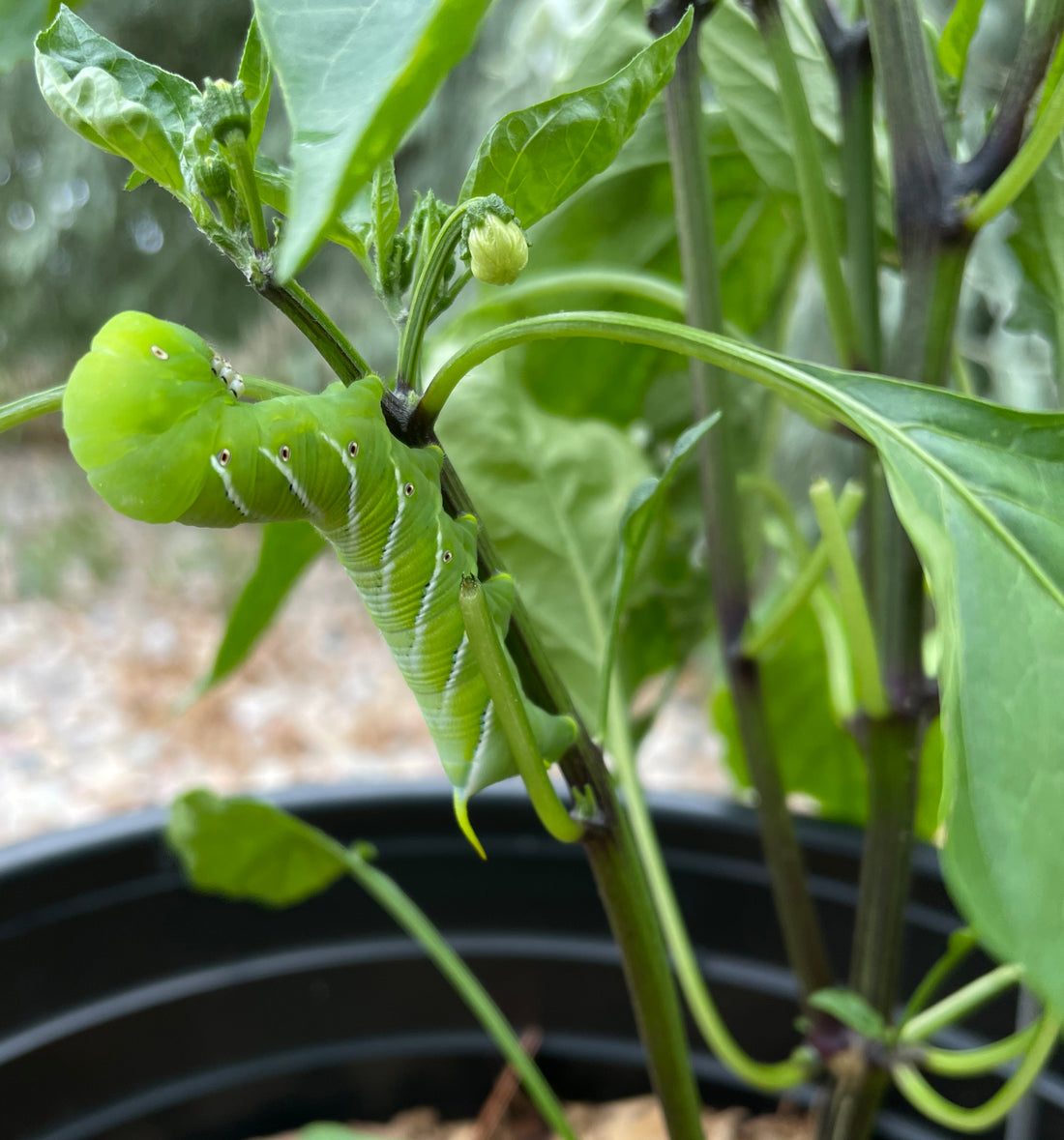Pest Pressures
In Northern Colorado we see pressures from different pests every year. Some years it is grasshoppers or flea beetles. Other years you might be dealing more with thrips, leafminers or earwigs. If you live in or near Fort Collins, you may have come across the Hornworm, also known as a Tomato Hornworm.
What's eating my plants?
If you are seeing missing leaves on your tomato, pepper and other nightshade plants, inspect closely. You may have hornworms! You will often see the damage before you see the hornworm itself:

It almost looks like the way deer take nibbles of plants in the middle of a stem or branch. To mitigate the spread of diseases you can prune those damaged stems down to the node with a clean pair of pruners.
What do I do now?
You see the damage, now find the culprit! The hornworm is green and will blend into the plant well to keep it from being seen by predators. They can be as small as a couple of centimeters or as long as ten centimeters.

The "horn" on its caboose is not a stinger. Pull that sucker off and make sure there are no others on nearby plants. If you have a lot of plants, you can come out at night with a “black light” or UV lamp to search for them. The markings on the their body will illuminate in the black light making it much easier to spot them.
How did they get there?
Eggs are usually laid by the adult form which is the Sphinx Moth or Hawkmoth. The females will lay eggs in the soil or on the leaf of a host plant and the larvae/caterpillar will hatch in about four or five days. The pupate stage can over winter and release the adults in the spring. While the moths can be good pollinators, the caterpillars can devastate entire plants in a few days so their benefit to your garden plants is arguably minimal.
What can I do to prevent them?
Spray Bacillus thuringiensis (also known as B.t.), by the late spring or at the first sign of damage. It is a bacteria that controls caterpillars and works best when they are young. A product that contains "Spinosad", like Monterey Garden Insect Spray is also very effective and can be purchased at Mountain Lion Garden Supply.

Pulling hornworms off as you see them is the best way to get rid of the big ones. Tilling your soil in the fall or spring can also mechanically destroy the pupae that may be hiding in your soil. If you see the caterpillars with little white larvae coming out their sides, they have been infected with eggs of a parasitic wasp. In this scenario, the braconid wasp larvae will kill the hornworm and the wasp adults can infect other hornworms. Enabling a wasp predator can naturally control hornworm populations and can be helpful in a large garden. Don't leave hornworms alone if you see them, they will even eat your fruits!


